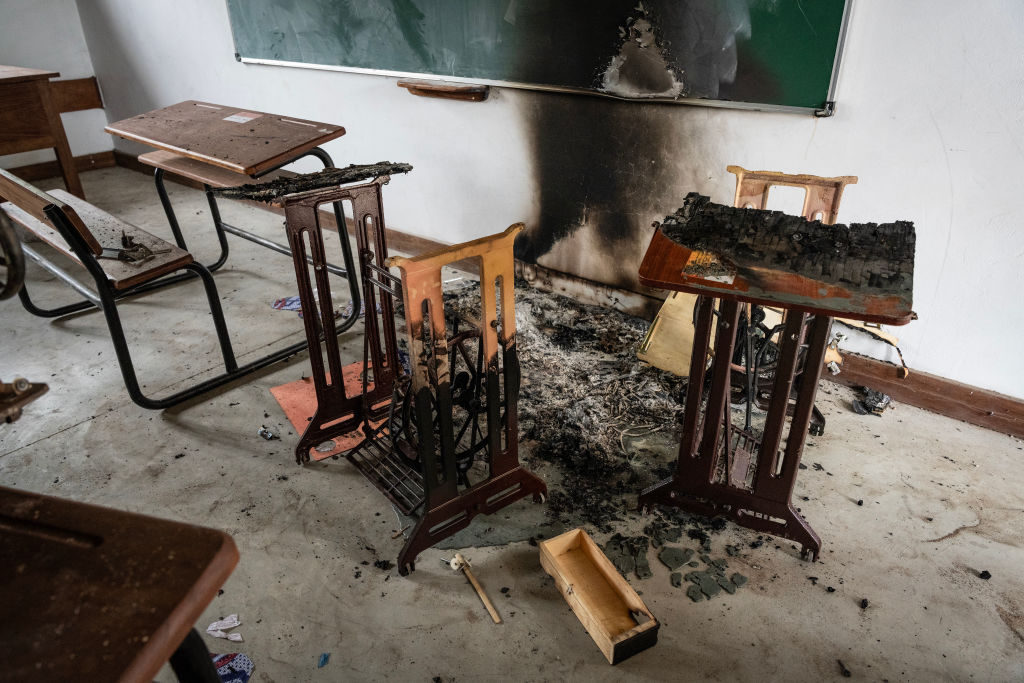ADF STAFF
Since deploying in 2021, the Southern African Development Community (SADC) Mission in Mozambique (SAMIM) has helped reduce the presence of Islamic State-affiliated terrorists in the Cabo Delgado province from several thousand to a few hundred. However, the upcoming end of SAMIM on July 15 has some observers concerned about a revival of terrorism in the region.
In recent months, the chronically underfunded 16-nation SAMIM contingent has begun to shrink. Botswana and Lesotho withdrew their forces in April. Angola and Namibia are preparing to leave. Terrorists with the group known as Islamic State Mozambique are seizing the opportunity to reestablish footholds in the northern part of the country.
Militant groups have attacked coastal communities as well as residents of the Quirimbas islands just off the coast. Terrorists have ambushed military patrols, brutally executed civilians and looted communities.
In mid-May, insurgents looted the Cabo Delgado community of Macomia at dawn. Local media reported that more than 20 Soldiers may have been killed in the attack.
“The risk is that the extremists will once again take a stronger foothold there since the issues that led to the conflict in the first place remain unresolved,” analyst Thomas Mandrup of the Security Institute for Governance and Leadership in Africa at South Africa’s Stellenbosch University, wrote recently for The Conversation.
The increase in terrorist activities has inspired South Africa and Rwanda to change their deployment strategies. South Africa, which provided nearly 1,500 of SAMIM’s 2,200 troops, will keep its forces on the ground through the end of the year. After that, 200 troops will remain behind until March 2025 to guard against illegal maritime activities.
South Africa has provided $45 million a year to SAMIM, which has continually operated short of full funding. South Africa’s own budget problems have kept its helicopters grounded, leaving SAMIM troops without air support.
Rwanda deployed 1,000 troops separately from SAMIM in 2021. Mozambique announced in May that Rwanda will add another 2,500 troops to fight the insurgency.
SAMIM and Rwandan forces have had trouble coordinating their efforts due to language barriers and equipment differences.
Despite those issues, security forces have enabled more than 570,000 people who had been driven from their homes by terrorism to return in 2023. Some of those same people have begun to flee their homes again as the new waves of terrorist activity spread.
For that reason, Webster Zambara, senior project leader for South Africa-based Institute of Justice and Reconciliation, recommends that SAMIM forces work with Mozambique to ensure a lengthier presence in the country to address an issue that affects the entire region.
“The bigger picture is that terrorism issues tend to be very long if we are to look at al-Shabaab in East Africa and also Boko Haram in West Africa” Zambara told Voice of America. “So, we may actually need to see SADC revisiting its position on this.”

